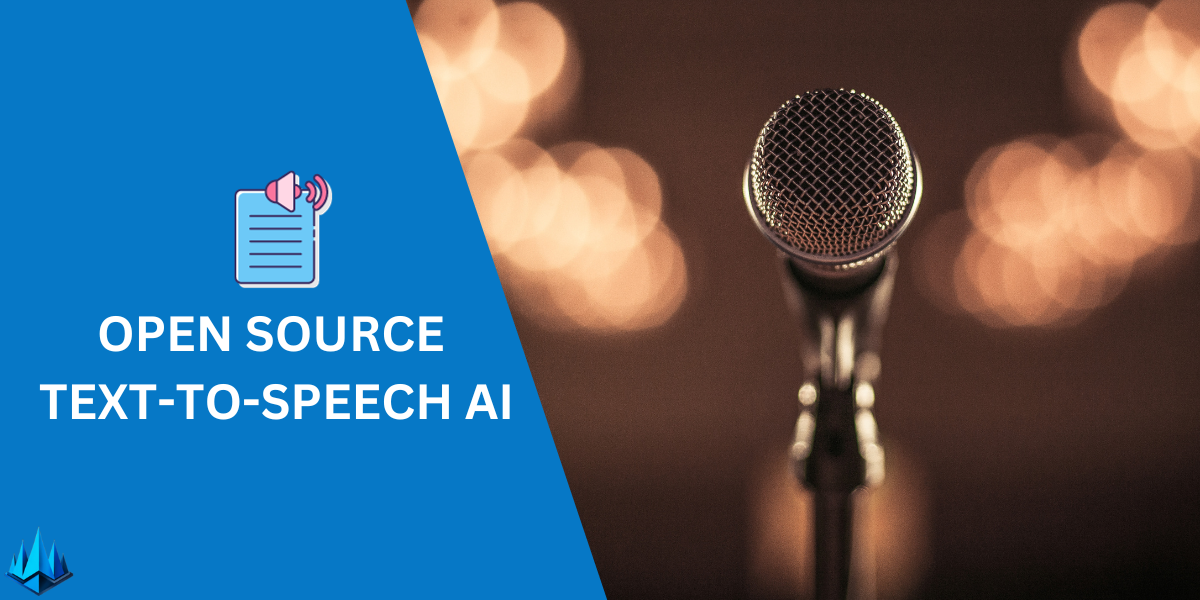Have you ever felt overwhelmed by the sheer number of text to speech solutions available today? With technology evolving rapidly, choosing the right open-source text-to-speech AI can be daunting. This is especially true when you’re looking for something that meets your needs and stays ahead of the curve in innovation.
In 2024, the landscape of open-source text-to-speech AI is more exciting than ever. Pioneers like ElevenLabs and ReadLoudly are reshaping how we interact with digital content, making it more accessible and engaging. Whether you’re a developer, a content creator, or just someone interested in the latest tech trends, understanding these developments is crucial.
In this post, we dive into the top 9 open source text to speech AI innovations of 2024. We’ll explore how these tools transform our digital interactions and why they stand out in crowded fields. From cutting-edge voice synthesis to advanced customization options, get ready to discover the future of digital communication.
Key Takeaways
- Understanding the evolving landscape of open source text to speech AI in 2024.
- Insights into how ElevenLabs and ReadLoudly are leading the innovation.
- Exploring the features that make these top 9 tools stand out.
- Discovering the impact of these innovations on digital communication and accessibility.
What Are the Best Open Source Text to Speech AI Tools in 2024?
1. ElevenLabs: A Revolutionary Voice Synthesizer
ElevenLabs stands out as a leader in open-source text-to-speech AI, offering a remarkably human-like voice quality. My experience with their tool was transformative; the natural-sounding speech made my digital content more engaging and accessible. The flexibility in voice customization allows for various applications, from audiobooks to virtual assistants. Its easy integration into multiple platforms makes it a top choice for developers and content creators.

2. ReadLoudly: Your Personal Reading Assistant
ReadLoudly brings a unique twist to text-to-speech technology. It’s not just a tool; it’s like having a personal reading assistant. While using ReadLoudly, I found its reading fluency and intonation remarkably human-like, enhancing my e-books and online articles. The user-friendly interface and the ability to adjust reading speeds cater to a wide range of users, including those with visual impairments or learning difficulties.

3. SpeakUp: For Engaging Multimedia Content
SpeakUp’s exceptional ability to bring life to multimedia content caught my attention. As a content creator, I appreciated how SpeakUp’s advanced emotional tone settings added depth to my video and audio projects. The tool’s ease of use and high-quality voice output make it an excellent choice for anyone looking to add voiceovers to their content without compromising on quality.

4. VoiceDream: Inclusive and Versatile
VoiceDream is not just another text-to-speech tool; it’s a gateway to inclusive digital experiences. My experience with VoiceDreamer was enlightening; its focus on accessibility features, like support for dyslexic-friendly fonts and screen reading compatibility, sets it apart. The tool’s range of voices and languages ensures that it can be used in diverse settings, from educational to professional environments.

Why Is Open Source Text to Speech AI a Game Changer in Content Creation?
The rise of open-source text-to-speech AI has revolutionized the way we approach content creation. This technology is not just a tool; it’s a game changer, opening up new possibilities for creativity and accessibility.
Imagine transforming written content into rich, engaging audio experiences with just a few clicks. This is precisely what open-source text-to-speech AI offers.

Providing a platform for easy and efficient voiceovers allows creators to reach a broader audience, including those with visual impairments or reading difficulties.
Moreover, the open-source aspect ensures continual improvement and customization as developers worldwide contribute to enhancing its capabilities.
This collaborative effort produces more natural, human-like voices, making digital content more relatable and enjoyable.
In essence, open-source text-to-speech AI is not just enhancing content creation; it’s redefining it, making it more inclusive and dynamic.
Final Thoughts
As we reflect on the advancements of open-source text-to-speech AI, it’s clear that this technology is more than just an innovation; it’s a transformative force in the digital world.
Open-source text-to-speech AI has democratized content creation, breaking down barriers and making information more accessible to diverse audiences.
Its ability to convert text into natural, engaging speech has opened up new avenues for creators, educators, and businesses.
The open-source nature of these tools ensures a continual evolution fueled by a global community dedicated to pushing the boundaries of what’s possible.
As we look towards the future, the potential of open-source text-to-speech AI is boundless. It promises a more inclusive digital landscape where everyone can enjoy content, regardless of their abilities or preferences.
This is not just a step forward in technology; it’s a leap towards a more connected and accessible world.
Frequently Asked Questions
What Is Open Source Text to Speech AI?
Open source text to speech AI is artificial intelligence technologies that convert written text into spoken words. These open-source tools are freely accessible and adaptable, allowing for widespread development and customization. They utilize advanced algorithms to generate natural-sounding speech, making digital content more accessible and engaging.
How Does Open Source Text-to-Speech AI Benefit Content Creators?
For content creators, open-source text-to-speech AI offers a versatile tool to enhance audience engagement. It enables the creation of audio versions of text content, making it accessible to a wider audience, including those with visual impairments or reading difficulties. Its customizable features allow creators to tailor the voice and tone to fit their brand or story.
Can Open Source Text to Speech AI Be Customized?
Yes, open-source text-to-speech AI can be highly customized. Being open source, developers and users can modify the code to suit specific needs. This includes adjusting the speech rate, tone, and even creating unique voices. This level of customization is particularly beneficial for creating unique brand voices or for specific application needs.
Is Open Source Text to Speech AI Accessible to Non-Technical Users?
Open-source text-to-speech AI tools are increasingly user-friendly, making them accessible to both technical and non-technical users. Many of these tools come with intuitive interfaces and simple controls, allowing users without programming skills to convert text into speech easily.
What Are the Limitations of Open Source Text to Speech AI?
While open-source text-to-speech AI is versatile, it does have limitations. The quality of the speech can vary based on the tool and customization. Additionally, some languages and dialects may not be as well supported as others, leading to less natural-sounding speech in those cases. Continuous updates and community contributions are essential to address these limitations.











